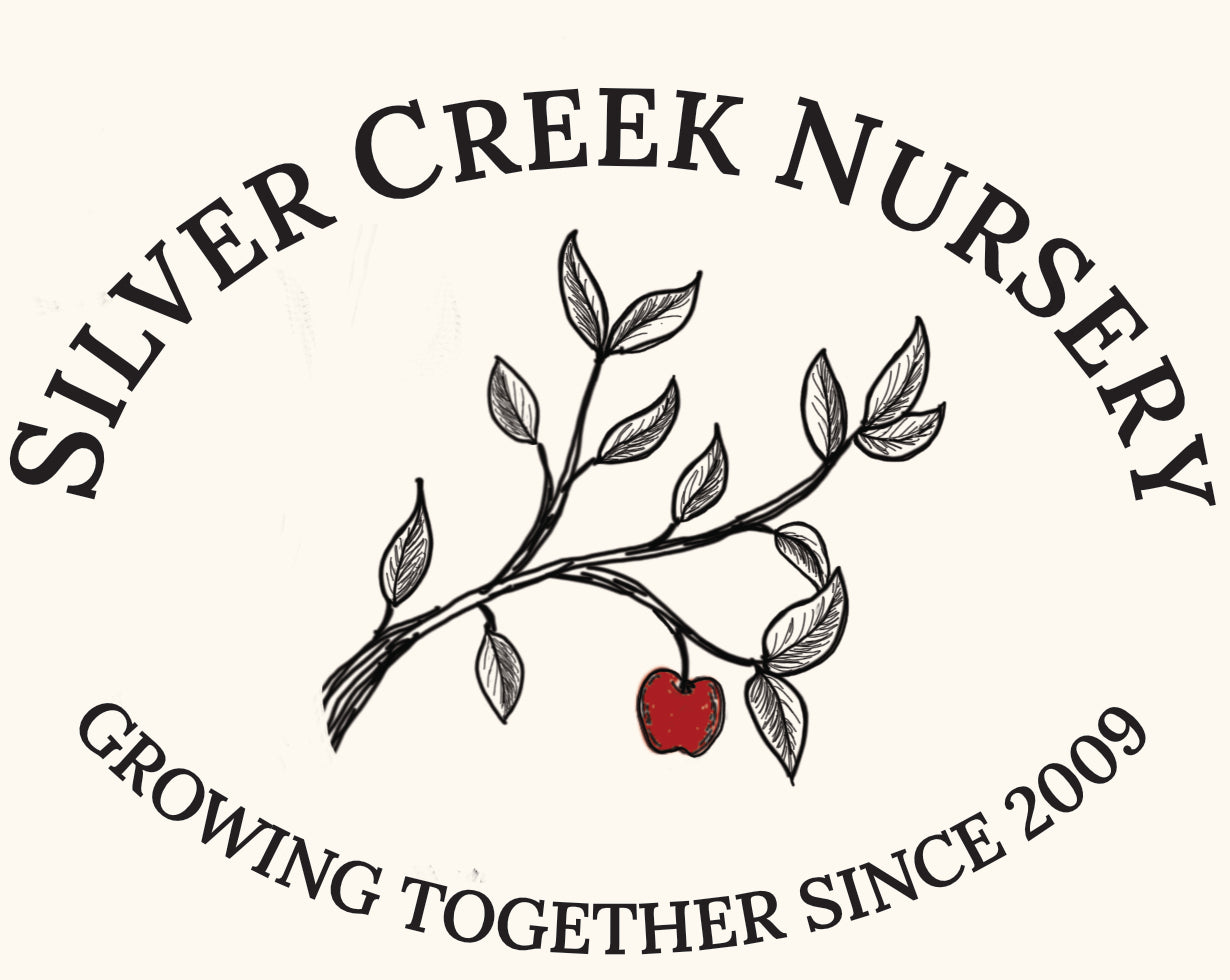Silver Creek Nursery Ltd.
Fauxwhelp Apple
Fauxwhelp Apple
History: As the story goes, about 60 years ago two English bittersharp cider apples were imported to America. One was the well-known Kingston Black. The other was supposed to be Foxwhelp, but something went amiss with the scionwood and to this day the only thing we know for sure is: Fauxwhelp is not Foxwhelp. It continues to be grown in North America where it remains a topic of interest amongst fruit growers. Unfortunately due to its strange history, there is still much to learn about this variety.
Why We Grow It: Fauxwhelp yields big, juicy, pleasantly tart apples that are good for fresh eating and decent for cooking. There is some debate about its use in ciders. Some claim it has merit when added to cider blends while others believe it is not suitable for making cider.
Fruit Specs
Fruit Specs
Recommended Use: Cider
Fruit Size:
Storage: Keeps until December
Harvest: September - Late
Cider Class (if applicable): Class: Bittersharp
Acidity: Medium to high, >4.5 g/L
Tannins: Low to medium, <2 g/L
Recommendations: Adds a nice bittersharp juice and some tannins to cider blends
Growing Specs
Growing Specs
Canadian Hardiness Zone: 5
Soil Preference: Sandy loam, loam, clay loam. Prefers average to moist conditions, avoid planting anywhere that floods for more than two weeks in the spring. Generally quite adaptable to different soil conditions.
Flowering Time: Middle
Bloom Colour: White
Pollination Requirements: Requires a pollinator of a different apple variety that blooms around the same time
Sun/Shade Requirements:
Full sun (approx. 8-10 hours of sun daily)
General Growth Habits:
Moderate vigor in our orchard, but generally unknown at this time.
General Disease Resistance Rating: Medium. This is a combined rating of how the cultivar produces and grows in our test orchard, along with the cultivar's known disease resistences/susceptibilities. Remember, just because a variety is susceptable to something does not mean it will get it. The microclimate, pests and disease present within your orchard/area will differ from ours too, creating a unique growing condition that may or may not induce certain pests or diseases.
Shipping vs. Pick Up
Shipping vs. Pick Up
CLICK HERE to see how shipping compares to pick up.
Shipping: Every year we ship thousands of trees across Canada (except BC due to CFIA regulations). We carefully bag roots in damp sawdust, then box them and send them out via courrier. CLICK HERE to see our shipping policy.
Pick-up: We also have thousands of trees picked up from our nursery each year. The pick-up options is free, though you must wait until you have been emailed a confirmation that your order is ready to pick up, which will have further information such as hours, locations, etc. We really appreciate if you can make an appointment to pick up, then we can be as organized as possible during our busy season.
Size at Purchase
Size at Purchase
Our grafted fruit trees are graded into three categories, and the size includes the rootstock:
- 50-80cm whip: may have some minor branching, this grade is like a "b-grade" size tree in industry standards; we include in this price category trees that are over 1m but have some scarring or mild crookedness.
- 1m+ whip: may have some minor branching, aka feathering. This is like a typical one-year whip in industry standards.
- 1m+ branched: these trees must be over a meter and have 3 or more branches 30cm or longer, as well as a central leader. They are essentially a two-year tree in industry standards.
- For stone fruits only - 1m+ whip/branched: We have combined these grades based on the way these trees grow and are grafted. Plums, apricots, cherries, and peaches naturally tend to grow more vigorously compared to apples and are more likely to form larger trees with more branches. However, we only chip bud them so they are a one-year old tree by industry standards. Apples and pears are partially bench grafted, and using the knip-boom method the grading becomes more complicated, hence the reason they are split into different grades.

Orders that are cancelled last minute due to size (being "to small"), will still incur the applicable cancellation fees if the trees are true to our grading standards as per the agreement of sale when the order was placed.
Couldn't load pickup availability
Share


